Nuts are often considered a superfood – they’re very rich in healthy fats and many other nutrients which make them a very healthy snack for us humans but does the same apply to mice? Since mice can eat so many different kinds of food it’s very tempting to share the food you’re eating with your furry friend, but that’s not always a good idea. There are certain foods that can be very dangerous to pet mice. With that said, the question you probably want to have answered is: can pet mice eat nuts, or are they best avoided? Today, we’re going to find out!
Can mice have nuts?
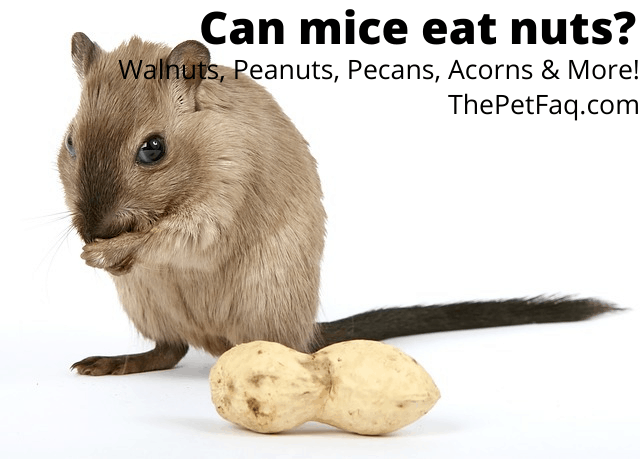
As previously stated, nuts are very rich in healthy fats but that’s not all. They also contain a lot of protein, fiber, vitamin B’s, vitamin E, and several important minerals. The exact nutritional makeup differs between nuts, a hazelnut does not contain the same stuff as a walnut for instance.
Nuts are not toxic or dangerous for mice. Giving your mice a small serving of nuts will not harm them. However, since nuts are so rich in fat and high in calories you have to be very careful not to overfeed your mouse. In small amounts, nuts are a great treat, but in large amounts, they can easily lead to an overweight mouse which can result in health issues.
Keep in mind that while a single nut might not be enough to satiate you, it’s a huge portion for a mouse. Mice are very small animals and do not need a whole lot of food. If you’re going to feed nuts to your mouse a single nut is often already too much. It’s better to cut the nut into pieces and give them only a small piece of it.
Mice have evolved in a way that they seek out food that is high in fat because it gives them a lot of energy. For that reason, most mice absolutely love eating nuts and if you give them unrestricted access to nuts they will eat way too much of it. It’s your responsibility to ensure that they can’t gorge themselves.
With that being said, let’s take a closer look at which nuts mice can eat and which ones to avoid.
Can mice eat almonds?
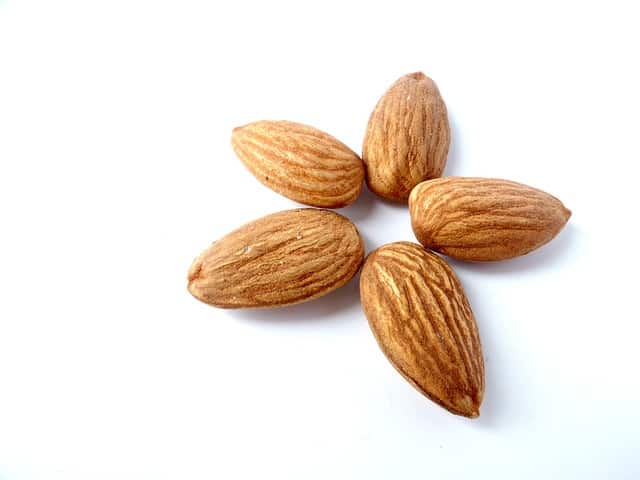
Yes, mice can eat almonds safely, they are not toxic to your pet. Almonds are very rich in B vitamins, Vitamin E, copper, zinc, iron, and calcium. Because of this, they’re an excellent snack for mice. They can boost the immune system and Vitamin E has properties that help keep their skin and coat in good condition.
However, just like other nuts, almonds are quite high in calories and fat so make sure that you do not feed them too much.
Can mice eat Brazil Nuts?
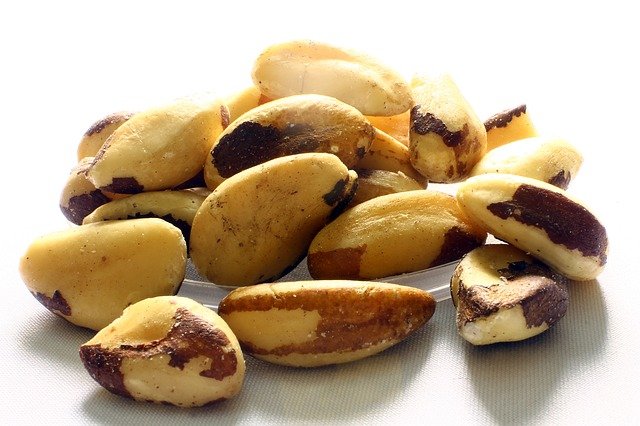
Yes, brazil nuts are fine for mice to eat. They are not dangerous, but since these nuts are so big you can’t give your mouse a whole brazil nut. Make sure to cut it up and only feed them a small part of it.
Brazil nuts are exceptionally rich in Selenium which is good for the immune system. On top of that, it contains a good amount of Thiamine, copper, zinc, calcium, iron, and Vitamin E.
Can mice eat cashew nuts?
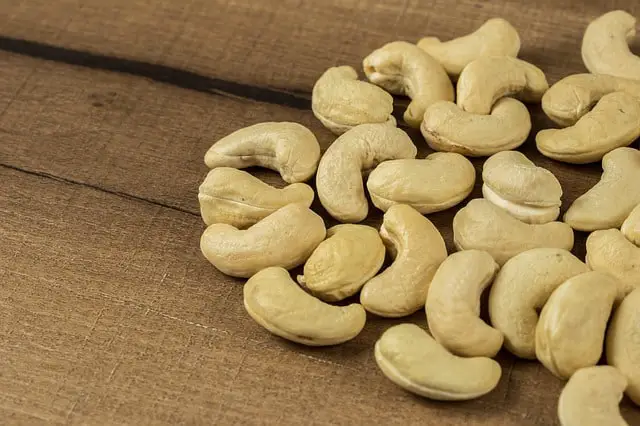
Mice can definitely eat cashew nuts. However, if your pet mouse is elderly or has kidney issues then it’s best to choose a different nut because cashews contain a relatively high amount of phosphorus.
If your mouse is young and healthy then cashews pose no danger for your pet mouse. Nevertheless, even if you have a young, healthy, active mouse you still have to limit how much you feed them. Just like other nuts, cashews are high in calories and fat, and feeding them too many of these nuts can easily result in weight gain.
Can mice eat pistachios?
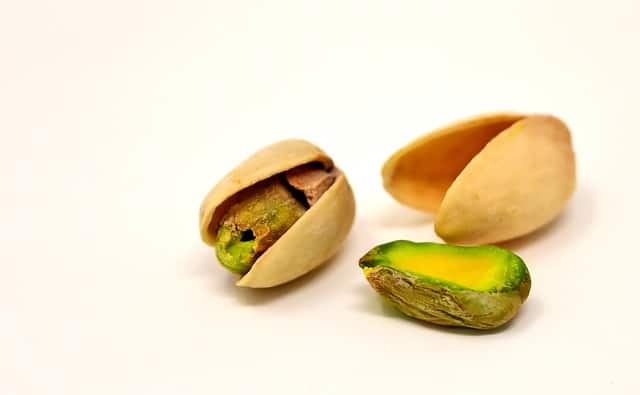
Your pet mouse will be happy to hear this, it can eat pistachios safely! They’re a great source of vitamin B, fiber, protein, minerals, and antioxidants. Of course, just like the other nuts on this list, you have to make sure not to give them too many pistachios because they contain a lot of fat and calories.
Can mice eat pecans?
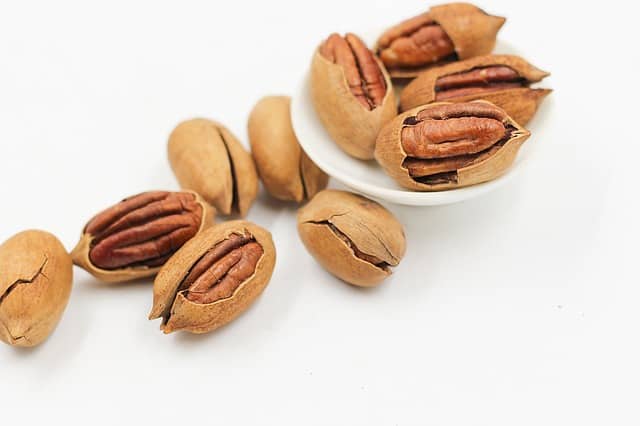
Yes, mice can eat pecans and you can safely feed them this nut. They contain a good amount of Omega 3, fiber, vitamins, minerals, and antioxidants making them a healthy snack option.
They do have a high fat content, but these are healthy fats. Nevertheless, while these fats are healthy for your mouse to eat, it does mean that they can not eat too many pecans. While a small amount of healthy fats is beneficial, too much can lead to excessive weight gain.
Can mice eat walnuts?
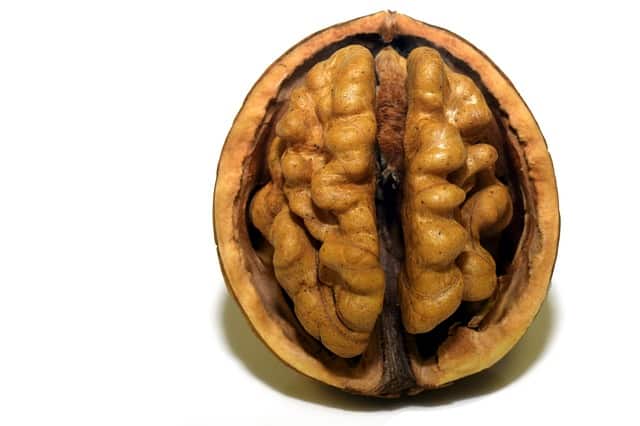
Walnuts are one of my favorite nuts – they’re incredibly healthy while also being very tasty. Luckily for our mousey friends, they can eat them too! Mice can eat walnuts and they’re a great snack for them because they’re very rich in antioxidants. In fact, did you know that walnuts contain more antioxidants than any other nut on the planet?
On top of that, they’re a great source of Omega 3, B vitamins, minerals, and phytochemicals. All of this means that they’re great for mice to snack on from time to time. Do make sure that you do not give them a whole walnut – it’s simply too much for a single mouse to eat. If you have multiple mice (as you should, mice hate being alone) then you can give them a whole walnut to share between them.
Note: the RSPCA does claim that walnuts are toxic to mice. However, they do not state any evidence to support that claim. On the contrary, a study performed by the University of Oregon discovered that the consumption of walnuts actually improves the metabolism of mice. In addition, there are several other studies where scientists fed walnuts to mice, such as this one, which showed that walnuts slowed cancer growth. There is also this study, which showed that when fed fed walnuts, mice improve their learning skills. Furthermore, there are several anecdotal experiences on Reddit of people who have fed small pieces of walnut to their pet mouse without any issues.
Can mice eat peanuts?
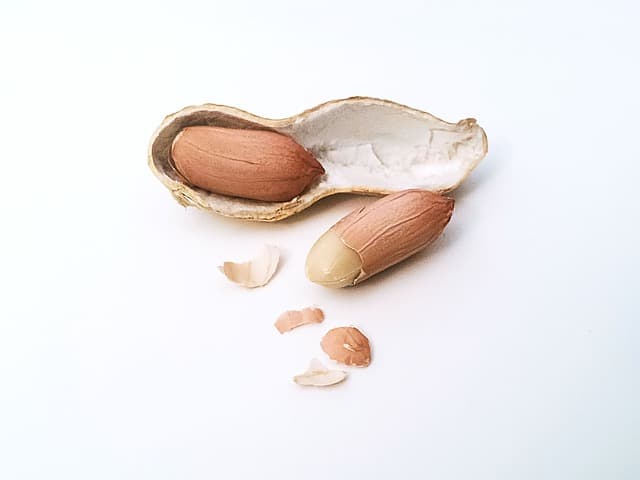
The name peanut is pretty misleading – they’re not actually nuts! Instead, they’re legumes. The reason why I still include them in this post is that most people consider them to be nuts, and it’s easy to see why (they are called peanuts after all…).
Mice can eat peanuts. There are some websites out there that claim that giving peanuts to your mouse will kill it – there’s no truth to that statement. People feed their mice nuts all the time and they’re perfectly fine. The reason why some people make this claim is because peanuts contain lectin and phytates which can hamper mineral absorption. However, this is only really a problem if you feed your mouse a diet that’s very deficient in minerals or if you feed your mouse a lot of peanuts.
Eating a small piece of peanut every now and then will not kill your mouse and can actually be a good treat because it contains a good amount of fiber, antioxidants, and minerals. Do make sure that you do not feed your mouse too many peanuts because they contain a lot of fat and calories.
Now that we’ve discussed peanut butter, you might be curious whether mice can eat the most popular peanut product: Peanut butter. Peanut butter is not a great treat for mice because it’s too sticky and can be hard for them to swallow. On top of that, it’s very fatty and they can easily eat too much of it.
Can mice eat acorns?
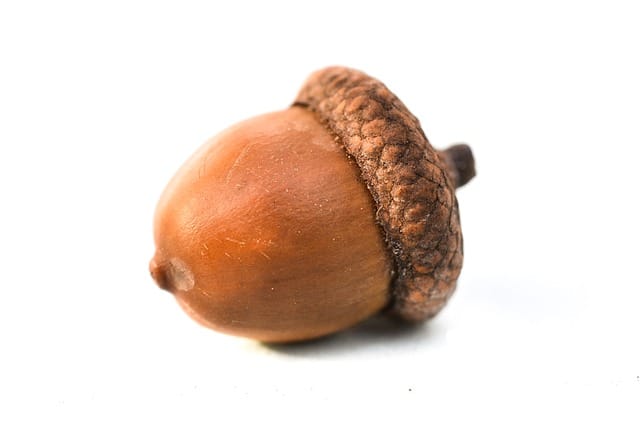
Pet mice can definitely eat acorns and they’re known for eating these nuts in the wild. They’re very hard to chew which is great because it helps them grind down their teeth. On top of that, acorns are rich in vitamin A, Vitamin E, and Iron, making them a good treat for your pet mouse.
Be noted though that like other nuts acorns have pretty high fat and calorie contents so feed in moderation to keep your mouse at a healthy weight.
Can mice eat hazelnuts?
Hazelnuts are a great treat for your pet mouse. They can definitely eat them and most mice absolutely love them. They’re rich in nutrients like copper, manganese, and magnesium. On top of that, they’re a great source of antioxidants. Studies have also shown that these nuts could decrease inflammation.
Just like the other nuts we’ve gone over, hazelnuts contain a lot of healthy fats. These fats are good for your mouse in moderation but it does mean that you have to feed it in moderation – it’s definitely not an everyday food for them and is better suited as a special treat.
Can mice eat chestnuts?
Yep, mice can eat chestnuts. They can eat them roasted or raw. They contain a good amount of vitamins and minerals, but are high in fat and calories so make sure that you only feed them a very small amount.
Can mice eat macadamia nuts?
Pet mice can eat macademia nuts safely, but be careful – these nuts contain the highest amount of fat out of any nut on the planet meaning that mice can not eat too much of it. In small amounts they’re safe and a great snack because they contain good amounts of thiamine, manganese, iron, fiber, and many other essential nutrients.
Precautions when feeding nuts to mice
So, now you know that most nuts are safe for mice to eat. However, while nuts can be a great treat for our mousey friends, you have to make sure that the nuts you give them are not salted. Mice do not need a whole lot of salt in their diet so salted nuts are not something that you should give them.
Also, many of the nuts that are sold for human consumption have flavored coatings. While these flavorings might be very delicious, they’re not great for mice to eat.
Your mouse will not die if you give him a single salted or flavored nut, but doing it to often can lead to health issues.
The one thing that you should be careful of is chocolate covered nuts. Some nuts, such as almonds, are often sold with a chocolate coating. Mice should not eat chocolate, so avoid chocolate-covered nuts.
Finishing up
So, to sum it all up, nuts are safe for mice to eat as long as you feed it in moderation and can actually be great, healthy snacks. The high fat and calorie content of nuts means that mice can not eat them too often otherwise there’s a very high chance that you’ll end up with an obese mouse.
I hope this guide was helpful and that it answered all your questions. If you want to learn more about owning a pet mouse, check out my beginner mouse owner’s guide here.
- How Long Do American Eskimo Dogs Live? Important Factors and Care Tips - September 29, 2023
- Do American Bulldogs Need Grooming? Essential Tips and Care Guidelines - September 29, 2023
- Do Bengal Cats Enjoy Playing? Essential Tips for Keeping Them Active - September 29, 2023